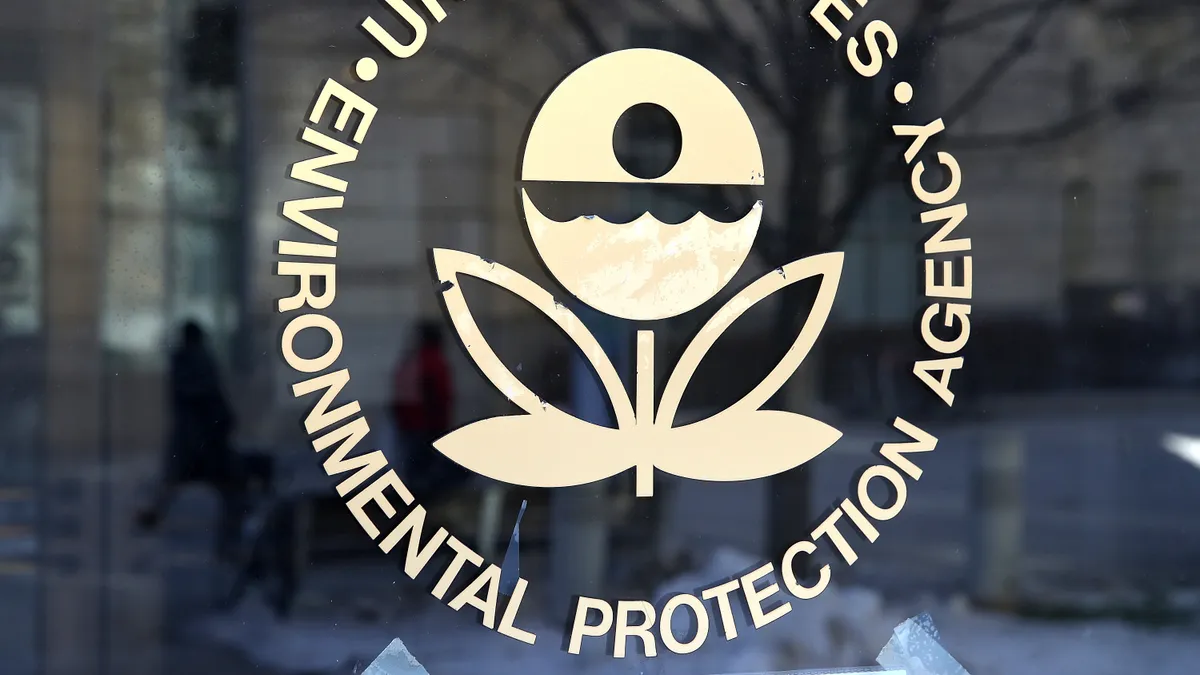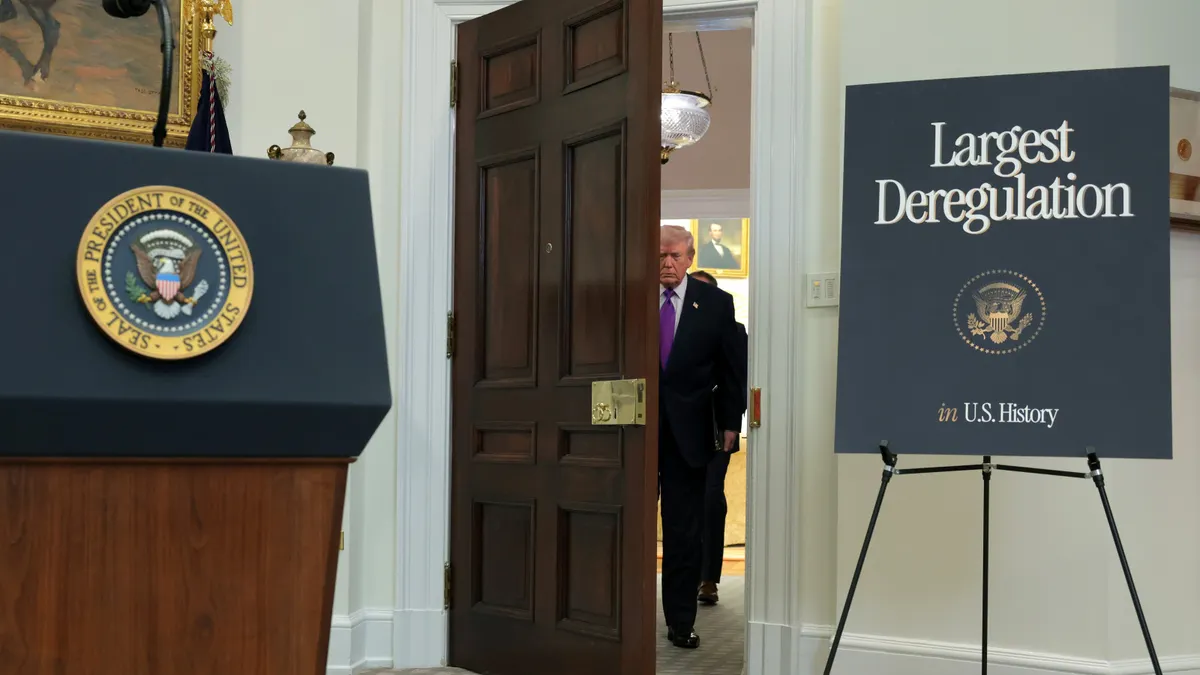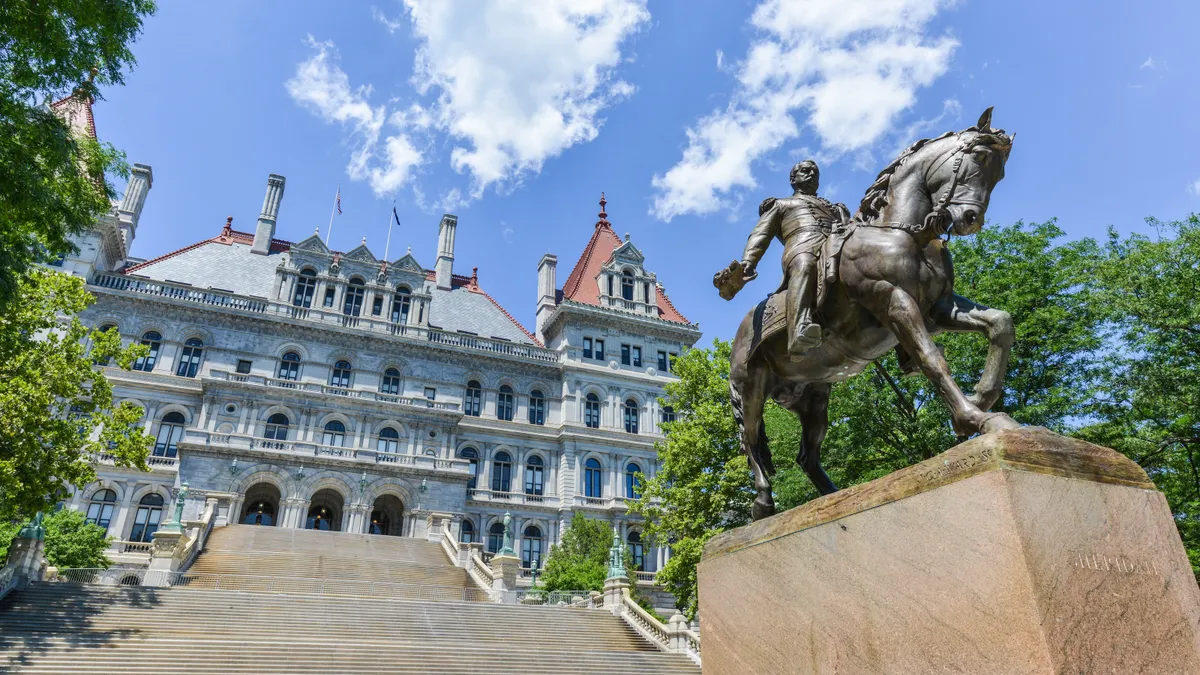NEW YORK — In a year marked by withdrawals from global climate agreements, funding suspensions for clean energy projects and other measures that reverse the United States’ federal climate policy, sustainable investors are trying to find a way forward with Republicans steering both Congress and the White House.
Last month, sustainability nonprofit Ceres used Climate Week NYC as an opportunity to help find potential areas of bipartisan collaboration on investors’ environmental concerns and ability to consider ESG risks. Looking to find areas of common ground around protecting investors’ “freedom to invest” their funds, Ceres hosted a Sept. 24 mainstage session at the Nest Climate Campus, with bipartisan and center-right business advisories and advocacy groups.
Andrea Strimling Yodsampa, CEO of bipartisan climate nonprofit Deploy/US, said that climate and clean energy “have been misbranded as progressive issues,” but there is an opportunity to engage center-right groups and Congressional leaders, as well as investors and business leaders, who can help engage the current administration on the issue.
“There is no path to durable policy without bipartisan support,” Yodsampa said on one of the panels. “It has been a fact for a while, and I think that the environmental movement — which I come from — is starting to really wake up to that in a different way right now, given the current realities, and that's a really good thing.”
Ceres CEO Mindy Lubber said “the risk has never been so clear,” as the U.S. is seeing climate impacts on insurance markets, water shortages and heat waves and severe weather events causing billion dollar impacts at increasing frequency.
However, Lubber added that there are also opportunities in this time. Former Republican Representative Carlos Curbelo, now principal at advisory firm Vocero, said that the conversation on climate risks has focused too much on the concept of “sacrifice” and what people would have to give up to support the climate fight. “As the conversation has become more about opportunity, it has become so much easier for conservatives and Republicans to embrace these issues,” Curbelo said.
“Over the years, we've learned that this can, and really should be, a conversation about opportunity,” Curbelo said on another Ceres-hosted panel. “And if we really embrace that and understand that what we're talking about is making people safer, making people more prosperous, giving people more personal agency and independence.”
Brandon Arnold, executive vice president of center-right think tank the National Taxpayers Union, said laws that ban financial institutions from participating in state markets based on their ESG considerations have cost taxpayers in Oklahoma and Texas.
A federal judge issued a permanent injunction on Oklahoma’s Energy Discrimination Elimination Act last year, after groups within the state had begun flagging rising municipal borrowing costs as a result.
More than 100 anti-ESG bills were introduced in state legislatures this year, but only 11 passed through June. A federal judge has issued a preliminary injunction on one of them, a Texas law targeting proxy advisers, after Institutional Shareholder Services and Glass Lewis — the world’s largest proxy advisers — sued Texas Attorney General Ken Paxton to halt its implementation.
“People should be free to engage in ESG investing as individuals, as private companies and so forth, [and] they shouldn't be forced to do so as a pension recipient,” Arnold said. “We need to kind of take the government's thumb off the scales here, allow markets to function properly, allow individuals and businesses to operate as they see fit.”
State finance officials on both sides of the aisle were accused by BlackRock, the world’s largest asset manager, of “politicizing” the management of public pension funds, after Republican and Democrat officials sent dueling letters to U.S. financial institutions over the summer. Republican officials urged BlackRock and 24 other institutions to stop framing climate change as a long-term risk, while Democrat officials called for the firm and 17 other institutions to reaffirm their commitment to managing climate and other long-term risks.
“We know we don't have to agree on everything, but we should agree about this: Investors’ responsibility to prudently manage risk is not a political issue,” Lubber said. “This cannot be about politics.”





















